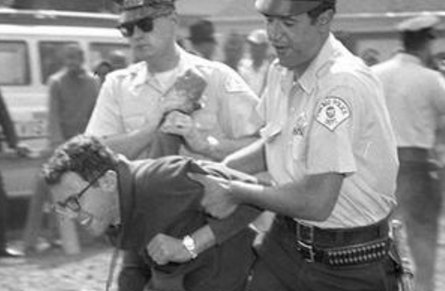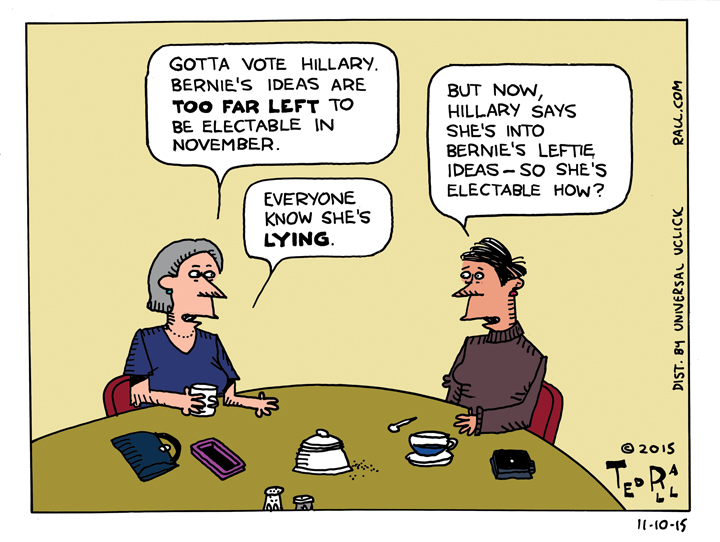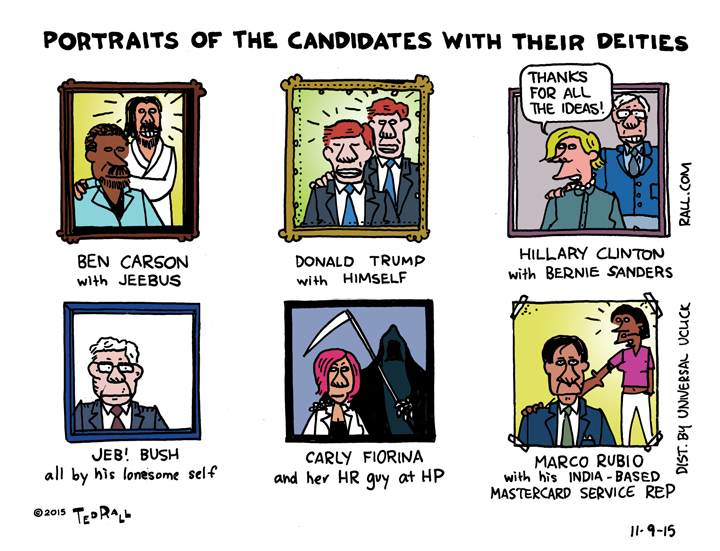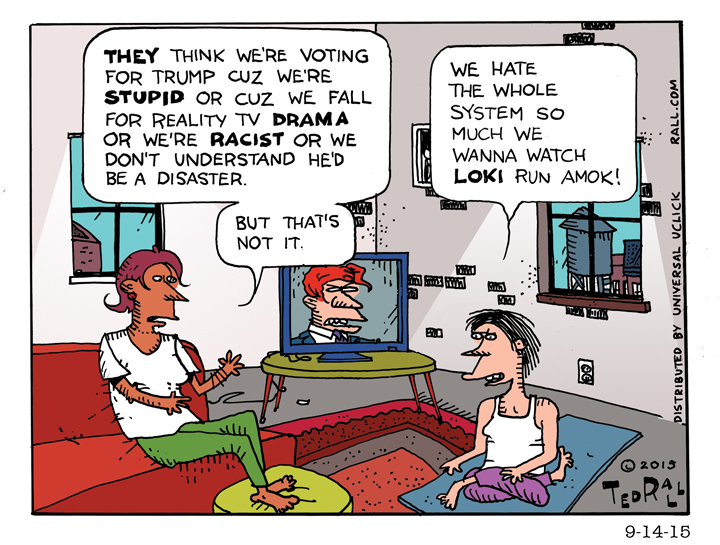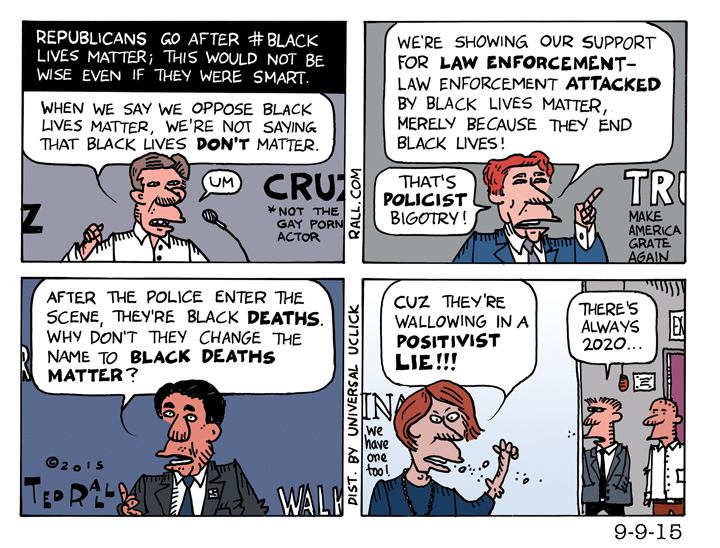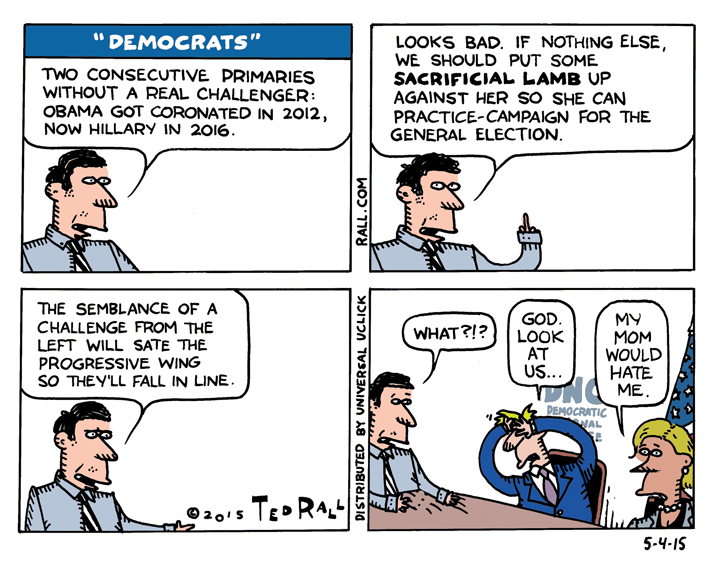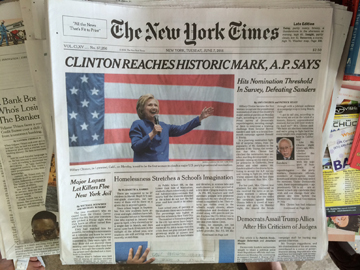 Though it might not always seem like it, the news media is composed of human beings. Humans aren’t, can’t be, and possibly shouldn’t be, objective. Still, there’s a reasonable expectation among consumers of political news that journalists of all political stripes strive to be as objective as possible.
Though it might not always seem like it, the news media is composed of human beings. Humans aren’t, can’t be, and possibly shouldn’t be, objective. Still, there’s a reasonable expectation among consumers of political news that journalists of all political stripes strive to be as objective as possible.
At their minimum, media outlets ought to be straightforward about their biases.
They certainly shouldn’t have, or appear to have, their thumbs on the scales.
Unfortunately, all too often, it appears that the political system is rigged – and that the major media companies play an important role in gaming the system. That’s what has happened throughout this year’s Democratic primaries, in which the vast majority of corporate media outlets appear to have been in the bag for Hillary Clinton, the establishment candidate, against self-described “democratic socialist” insurgent Bernie Sanders.
Examinations of coverage have confirmed the impressions of cable news junkies that Sanders has been the victim of a blackout, thus depriving him of a chance to make his case to voters. When the chairwoman of the Democratic Party, Debbie Wasserman Schultz, scheduled the first round of Democratic debates at times the party hoped nobody would be watching – again, a seemingly obvious ploy to deprive Sanders of exposure – corporate media outlets had little to say about it.
Then there has been the media’s complicity in spreading Clinton campaign talking points that bore little relation to the truth.
MSNBC and other DNC-aligned media outlets kept pointing out that Clinton won 3 million more votes than Sanders. True, technically. But that’s pretending that caucus states didn’t exist. Sanders did better than Clinton in caucuses.
Most recently, they conflated pledged delegates – those won by a candidate based on votes cast – with superdelegates, the Democratic politicians and party officials who will be able to vote however they want at the convention this coming July. Back in November, an Associated Press survey found that Hillary Clinton – unsurprisingly – enjoyed the support of the vast majority of the superdelegates. Assuming that the superdelegates will not change their minds, the AP called the Democratic race for Hillary Clinton on Monday, the night before a set of important primaries, including California. Does anyone doubt that calling a race over as the effect of depressing voter turnout?
It’s impossible to quantify that effect, to know how many people didn’t bother to show up at the polls because they were told it was all over. In California, however, Hillary Clinton won 56% of the vote in a state where polls showed the two candidates neck and neck. (California’s state election officials also did their best to keep voters away from the polls.)
As a journalist, I’m reluctant to categorically argue that the AP ought to have held its statistical analysis of the race until after Tuesday’s vote. News ought not to be suppressed. When you have it, you ought to report it. Similarly, I’m not sure that the New York Times was wrong to report the AP story. However, I do question the editorial wisdom of running it as a banner headline. The United States is a democracy. We elect our leaders based on votes actually cast by real people, not polls. Even after Tuesday’s vote, Hillary Clinton still didn’t have enough pledged delegates to claim the Democratic nomination. Since those superdelegates aren’t going to vote until July, she won’t be able to really claim the nomination until then.
Agreed, it’s a silly system. But it’s the system the Democrats have. They – and the media – ought to abide by it. Besides which, think how embarrassing it will be if the Justice Department indicts Hillary between now and July. There’s a lot to be said for leaving things hanging.
The thing that disgusts me most about this system – besides the perpetual state of war, the manufacturing of mass poverty, the prison industrial complex, the miserable state of the justice system, the fact that it’s impossible to make a decent living working 40 hours a week – is that it doesn’t even pretend to follow its own rules in a consistent way. Consider, for example, how the New York Times couldn’t wait to report its “Hillary Clinton becomes first woman nominee from a major political party” story until after the primaries in California et al. Would one or two days have made a big difference? (Well, yes. Sanders might have won California.) If the idea is to get the story out first, no matter what, even if it suppresses the vote, I can respect that. But then they ought to be consistent.
It was a very different story back in 2004. A few weeks before the general election in November, the New York Times researched and came to the conclusion that George W. Bush, the incumbent, may have cheated in at least one of the presidential debates against Sen. John Kerry. Photographs of the debate clearly showed a suspicious bulge in Bush’s shoulder; the Times did report the story as a light he-says-she-says piece. But then experts concluded that the tongue twisted former governor of Texas had been using a receiver paired with an earphone in order to get advice and retorts to carry from an unknown co-conspirator.
Editors at the paper decided to hold a serious exposé until after the election so that its coverage would not affect the results. Then they killed it. Four more years of Bush followed.
Actually, the corporate media’s policy is brutally consistent. If holding a story benefits the forces of reactionary conservatism, it gets held. If releasing it does so, it gets released. Time after time, the system exposes itself for what it is.
(Ted Rall is the author of “Bernie,” a biography written with the cooperation of Democratic presidential candidate Bernie Sanders. His next book, the graphic biography “Trump,” comes out July 19th and is now available for pre-order.)

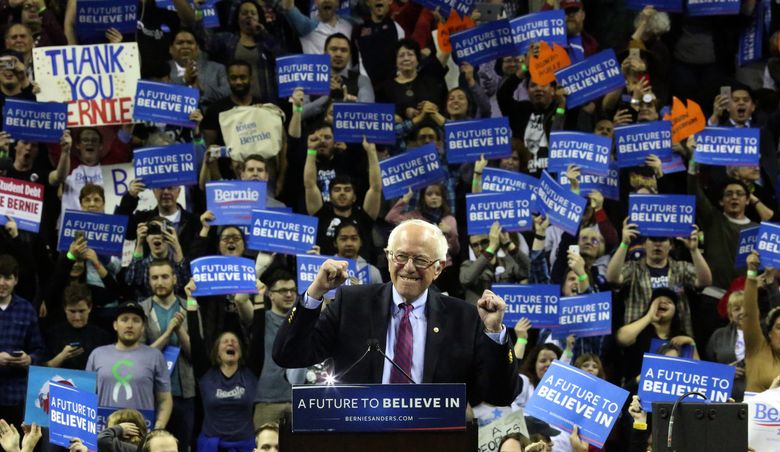 After disaster strikes, it often turns out that there were several contributing factors behind it. Looking back, though, there was usually one key moment when One Really Bad Decision was made — when catastrophe might have been avoided had the people in charge done something different.
After disaster strikes, it often turns out that there were several contributing factors behind it. Looking back, though, there was usually one key moment when One Really Bad Decision was made — when catastrophe might have been avoided had the people in charge done something different.